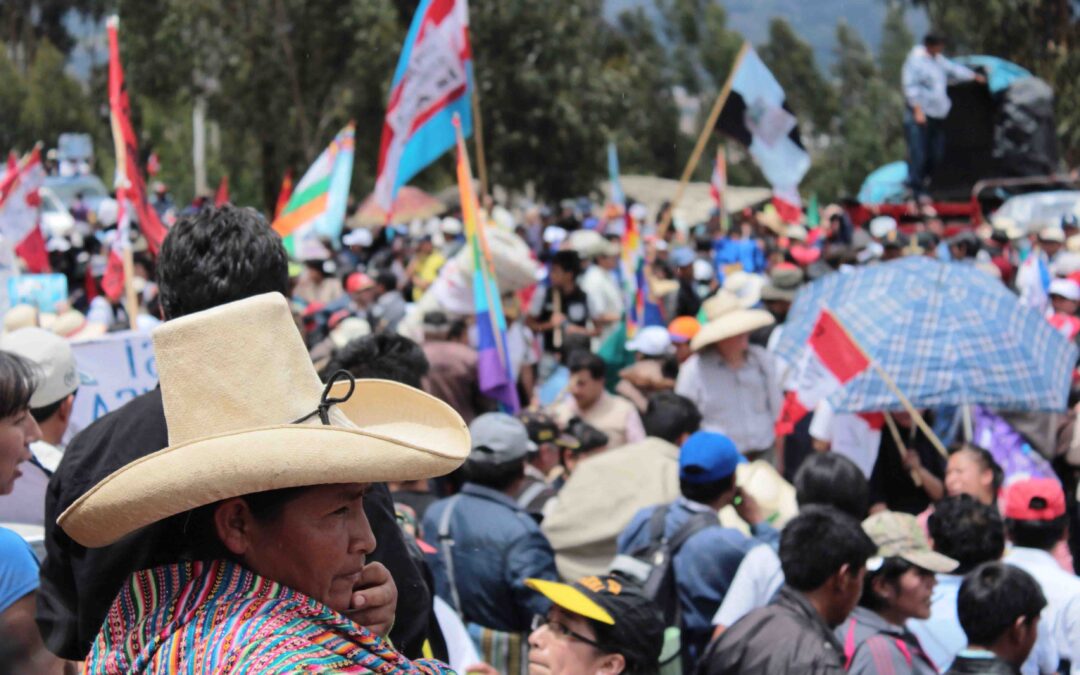
Nov 13, 2015 | News
The Peruvian authorities must revise a number of its laws and policies to better protect economic, social and cultural rights (ESCR) in the country, the ICJ says.
The call comes at the end of a one-week mission by the ICJ to gather information on and assess the impact of extractive industries on the economic, social and cultural rights of local populations, especially peasant and indigenous communities.
In particular, the ICJ is concerned at the adverse human rights impact of “Ley 30230” that aims at facilitating investment.
While investment can make an important contribution to the realization of human rights, the ICJ considers that this particular law effectively leads to a degradation of human rights by lowering social and environmental protection standards.
The ICJ does welcome the enactment of protective legislation by Peru, including that protecting and implementing the right to free, prior and informed consent of indigenous peoples or regulating the use of force by the police.
However, the ICJ notes these laws are often not effectively implemented in practice.
During the mission the ICJ verified information on the increasing number of violent conflict and social protests relating to mining projects.
“A large proportion of current social conflicts in the country is taking place in areas of extractive industrial activities. With a trend to lower the protection of economic and social rights and the environment in order to facilitate investment, there is a high risk that violent conflict will increase even more,” said Sandra Ratjen, Senior Legal Adviser for ICJ’s Programme on Economic, Social and Cultural Rights.
“There is a gap between Peru’s international law obligations to respect and protect human rights and the systematic threats to the enjoyment of rights, such as the right to water, to health or to housing, or to free and prior, informed consent that communities in mining areas are facing,” she added.
The ICJ is particularly concerned at the alleged unlawful use of lethal force to suppress demonstrations and social protests in mining areas such as in the recent case of Las Bambas.
The ICJ received information from various sources that in some instances the security forces had used such force in contravention of the principles of necessity and proportionality.
The ICJ urges the Peruvian authorities to take the following measures to strengthen the protection of Economic, Social and Cultural Rights in the country:
- maintain and strengthen the national laws and policies protecting human rights, particularly economic, social and cultural rights and the environment;
- accordingly revise legislation that obstructs the State to comply with its international human rights obligations, including those related to the realization of rights such as the right to decent work the rights to health and safe water or the right to be protected against forced evictions;
- fully ensure the free exercise of the right to peaceful assembly and of freedom of expression of individuals and peoples, including human rights defenders.
Additional information:
The ICJ mission included: María Clara Galvis, a Colombian lawyer specialized in international human rights law and Professor at Universidad Externado de Colombia ; Rafael Uzcátegui, a Venezuelan sociologist and Coordinator General of the Venezuelan Programme of Education and Action on Human Rights (PROVEA); Sandra Ratjen, Senior Legal Adviser for ICJ’s Programme on Economic, Social and Cultural Rights; and Olivier van Bogaert, ICJ Director of Media and Communications.
The delegation met with authorities from various Peruvian Ministries, representatives from extractive companies, cooperation agencies, human rights non governmental organizations, trade unions and community-based organizations.
In December, the ICJ will release a final report containing its findings and recommendations on the situation of economic, cultural and social rights in the context of extractive activities and the rise of social conflicts in Peru.
Contact:
Sandra Ratjen, Senior Legal Adviser for ICJ’s Programme on Economic, Social and Cultural Rights, t: +55 96 48 13 628; e: sandra.ratjen(a)icj.org
Peru-ESCR mission-News-Press release-2015-SPA (full press release in PDF, Spanish)
Photo credit: Jonas Hulsens
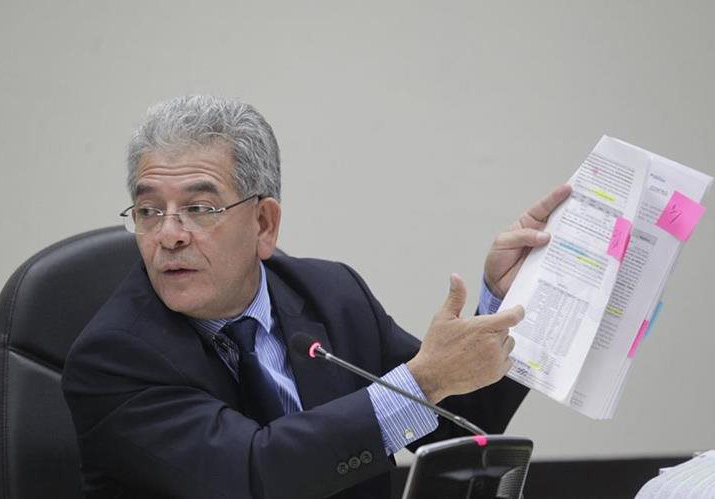
Oct 15, 2015 | News
La CIJ, durante la misión de su Comisionado José Antonio Martín Pallín al país, ha constatado que la trascendencia política y social de los asuntos que el Juez Miguel Ángel Gálvez está investigando, le ha ocasionado numerosos ataques injustificados desde diversos sectores de la sociedad guatemalteca.
Además, la CIJ recibió información que las y los jueces continúan siendo amenazados en el ejercicio de su independencia por la injerencia de la Corte Suprema de Justicia en funciones administrativas, relacionadas con el control del personal, especialmente en el traslado injustificado de jueces.
El Juez Miguel Ángel Gálvez (foto) ha afrontado riesgos de traslado en los últimos 6 meses.
La CIJ concluye que la actuación del Juez se ajusta a los principios internacionalmente admitidos del derecho al debido proceso y a las garantías de las y los sindicados.
La CIJ expresa su profunda preocupación por la acumulación excesiva de asuntos judiciales sobre el Juzgado de Competencia Ampliada del juez Gálvez, que hacen absolutamente imposible una actuación dentro de los plazos exigidos por la ley.
La CIJ demanda con toda firmeza que la Corte Suprema de Justicia tome medidas efectivas de apoyo al juzgado de Mayor Riesgo B, para que éste pueda concentrarse en la tramitación de los asuntos que verdaderamente preocupan en este momento a los ciudadanos y ciudadanas guatemaltecas, como por ejemplo el llamado Caso La Línea, el caso Sepur Zarco y el caso Siekavizza, entre otros.
La CIJ considera que ningún órgano judicial puede afrontar la pesada carga judicial a la que el Juez Gálvez tiene que hacer frente; cualquier demora en la tramitación de los asuntos pendientes ante su juzgado, no debe ser atribuida al juez Gálvez, sino a la inactividad de la Corte Suprema de Justicia, que no nombra a jueces de apoyo, que permitan tramitar las causas pendientes.
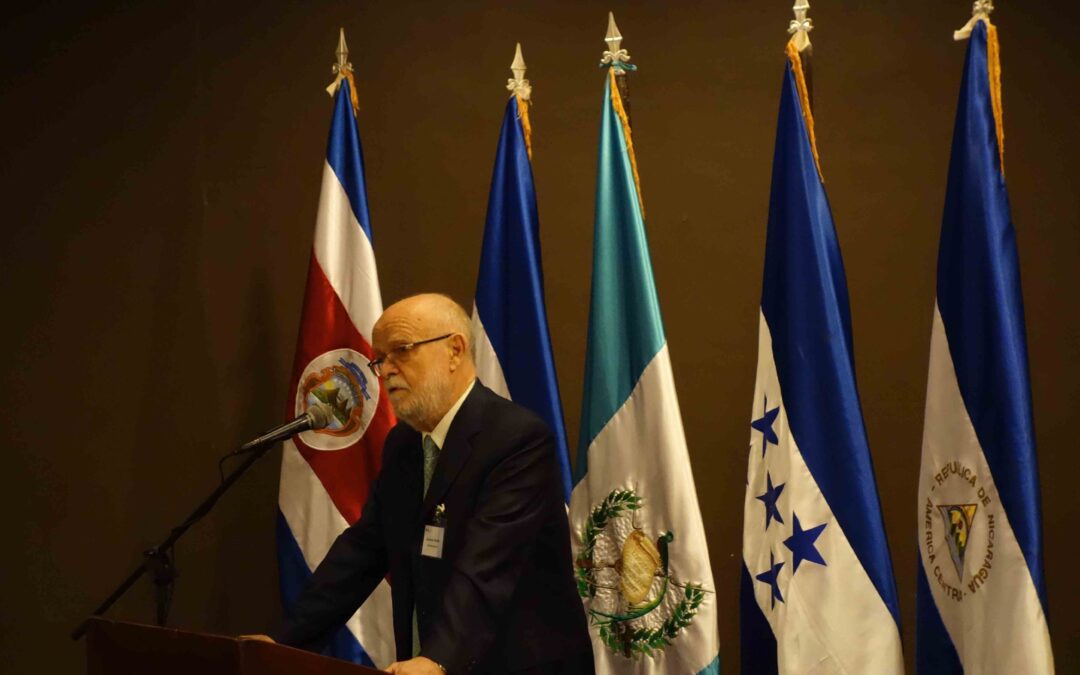
Oct 12, 2015 | News
In coordination with the Norwegian Judges’ Association and the Guatemalan Mayan Bar Association, the ICJ inaugurated today a two-day Conference in Guatemala City.
The Conference was inaugurated by Jan Gerhard Lassen (the Norwegian Ambassador for Guatemala), Josué Baquiax Baquiax (President of the Supreme Court ), ICJ Commissioner José Antonio Martín Pallín and Director of the ICJ in Central America, Ramón Cadena.
The main topics of discussion were the need to strengthen the judicial career, and associationism.
Guatemala currently has only one formal judge´s association, which was identified by the speakers at the Conference as not consistently acting in the best interests of independent judges, necessitating the creation of an alternative association.
In terms of the judicial career, judges from around the region discussed the changes necessary to the law in Guatemala to ensure that judges are protected from undue pressures coming from outside, and within the judiciary.
The Conference concludes tomorrow with a public forum which will showcase the results of two forthcoming ICJ studies on judicial independence and specialized justice.
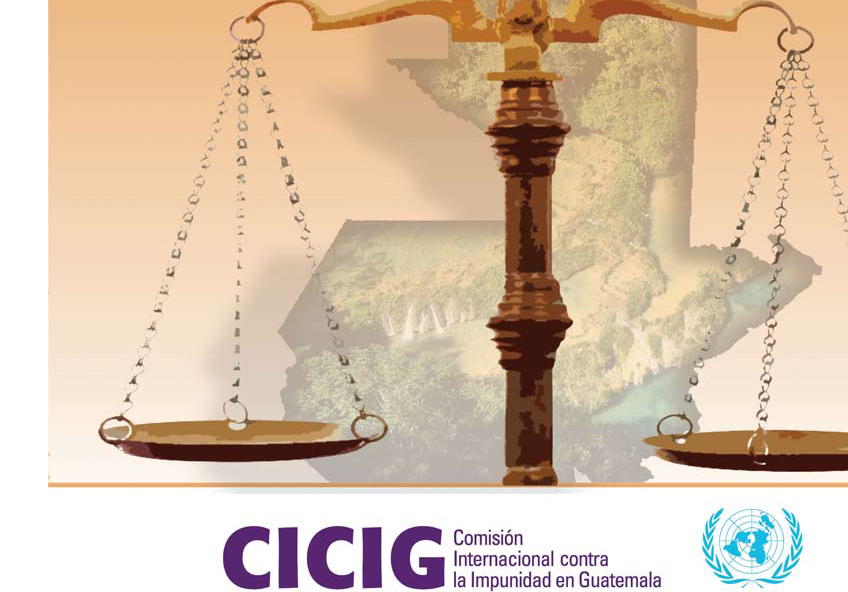
Jul 22, 2015 | News
Ante los procesos penales que ha iniciado la Comisión internacional contra la Impunidad en Guatemala (CICIG) en el país, la CIJ expresa su absoluto apoyo al Comisionado de la CICIG Iván Velásquez por la batalla que está librando por la depuración del Estado de Guatemala y contra la corrupción.
Todos los casos develados por la CICIG están demostrando los niveles de impunidad existentes, debido a la persistencia de diferentes estructurales criminales, que cuentan con participación de altos funcionarios de Gobierno.
La CIJ lamenta que un partido político esté promoviendo acciones en contra de la CICIG y manifestaciones de diversa índole, para desestabilizar al país y evitar que sus miembros y candidatos sean investigados.
La CIJ se permite recordar que los actos de corrupción afectan seriamente la vida de toda la población guatemalteca, el uso adecuado de los recursos públicos en beneficio de las mayorías y corroe los cimientos básicos del Estado de derecho.
Ramón Cadena, Director de la CIJ para Centro América, declaró: “Hacemos un llamado a todos los partidos políticos, para que apoyen la gestión de la CICIG y faciliten toda la información que coadyuve a las investigaciones que la CICIG está llevando a cabo para erradicar la corrupción en el país.”
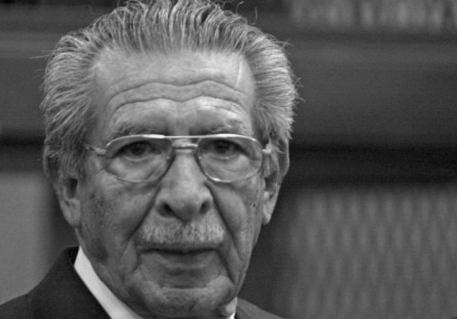
Jul 22, 2015 | News
El genocidio perpetrado contra población Ixil de Guatemala será debatido en el segundo juicio seguido en contra del ex Presidente de facto Efraín Ríos Montt y el ex Director de inteligencia José Mauricio Rodríguez Sánchez.
El juicio está por reiniciarse el 23 de julio. Lamentablemente, este segundo juicio ya se ha visto afectado por diferentes hechos, que a continuación describimos.
La recusación de la jueza Presidenta del Tribunal B de Mayor Riesgo, debido a la redacción de su tesis doctoral sobre el delito de Genocidio, no debió de haber sido aceptada por no existir una causa razonable, ya que dicho trabajo de tesis se relaciona con su formación académica especializada en justicia de transición.
Posteriormente, la jueza fue sustituida por un juez que ha evidenciado relaciones de amistad a través de las redes sociales con uno de los abogados defensores del acusado Ríos Montt (photo).
Nuevamente la defensa busca que por lo menos un juez “amigo” integre el tribunal. A ello se suma el hecho de que recientemente el Instituto Nacional de Ciencias Forenses (INACIF) emitió un informe que hace referencia al supuesto problema de salud física y mental del acusado Ríos Montt.
La CIJ de la manera más enérgica expresa que estos actos son parte de una estrategia que tiene como propósito eludir la acción de la justicia.
La CIJ considera que ello constituye una violación al derecho de las víctimas al acceso a la justicia y contra el derecho a un juicio justo, libre de intromisiones de todo actor externo.
La CIJ se permite recordar al Poder Judicial que el combate a la impunidad de acuerdo con los estándares internacionales la justicia debe obedecer a tres imperativos: juzgar y sancionar a los responsables de graves crímenes, como el genocidio; satisfacer el derecho de las víctimas a conocer lo sucedido y obtener reparación integral; y fortalecer la independencia de las autoridades judiciales.
El supuesto problema de salud física y mental del acusado Ríos Montt podría ser solo una simulación, para evitar que sea nuevamente llevado a juicio.
Al respecto, la CIJ denuncia las acciones violatorias del debido proceso realizadas una vez más, por la jueza Carol Patricia Flores, quien ordenó se le practicasen exámenes médicos a Ríos Montt, para averiguar acerca de su estado de salud físico y mental.
Esta orden de la jueza Flores es ilegal, debido a que el proceso ya se encontraba a cargo del tribunal de Sentencia Penal B de Mayor Riesgo y ella carecía de competencia para ordenar tal medida.
La CIJ insta a los jueces a ejercer su poder de contralores del proceso penal, rechazando todos los actos de litigio de mala fe que sean promovidos por la defensa de los procesados.
Se requiere que los jueces a cargo del juicio se encuentren libres de toda presión externa que pueda intimidarlos en su función.
Para garantizar su independencia deben contar con el apoyo de la Corte Suprema de Justicia, quien debe velar por su seguridad y por el desarrollo del proceso en un marco de respeto.
Ramón Cadena, Director de la CIJ para Centro América, expresó: “Otra vez estamos ante una serie de medidas dilatorias, que demuestran que existen jueces que se prestan a promover la impunidad de graves violaciones a los derechos humanos.”









